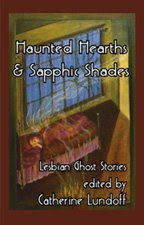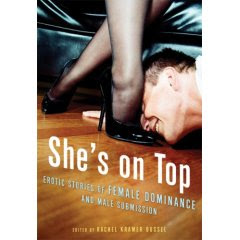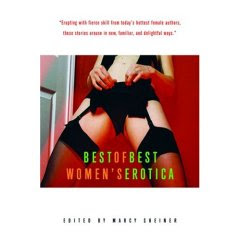Last weekend I read The Other Side of Desire by Daniel Bergner. A conversation on the Erotica Readers and Writer's association writer's list mentioned the book, but to my recall, no one said they'd read it. Desire should interest erotica writers. It's usually (but not always) the catalyst for sex. So I read the book.
It's not truly about desire. It's more of an exploration of the variety of human sexuality (heterosexual) and a few attempts to explain it. Those attempts usually end with a scientist shrugging.
One of the most interesting parts was an attempt to measure female arousal by showing female subjects pictures of animals and humans engaged in sexual activity while the subject recorded her level of arousal. The upshot? The brain and the body aren't in sync - if one believes that the level of lubrication in the vagina is an accurate measure of arousal.
On one forum I frequent, a man made the astounding (to me) claim that women only knew they were aroused when someone else observed that they were wet. Oh boy. The amazing part is that this guy had been married for years. As far as he was concerned, his wife was in a state of complete unawareness of her own body and mind until he pronounced her turned on. She's either a very forgiving person, or she deserves him. Despite his delusion that he has complete ownership over her sexuality, his observations aren't that far off what scientists are claiming. If a woman is wet, she must be aroused, right? And if she claims she isn't, she's unaware of her own desire, or she's lying.
But men admit that their dicks sometimes get hard for no apparent reason. And all that Viagra is around for a reason - men who feel desire that isn't reflected in their cocks. So why should it be different for women? And why all this gibberish that female desire is so hard to pinpoint? I swear - it's as if through all these centuries, scientists and men have failed to take the simple approach.
Why don't they just ask? (And here's a novel idea - actually LISTEN to the answers)
Because, they would say, that wouldn't be scientific. It has to be measured. That presupposes that women can't or won't give honest answers. Trust me - I know what turns me on. (I'm even aware of when I'm aroused, no dipstick test required. Imagine that.) As for honesty - ever ask a man for specifics of his sexual fantasies? Most of them drop their gaze to the floor and hem and haw. Kinsey proved that even in anonymous reporting, men lie about dick size. And yet no one ever out of hand dismisses what men have to say about their sexuality when they do talk.
I'm tired of this idea in scientific circles and in the real world that women are mysterious and unknowable. We aren't. James Burke the scientific historian and author of The day the Universe Changed and Connections, pointed out that science has perfected methods such that researchers know how to design tests so that the outcome almost always proves the hypothesis, which explains a lot of the pseudo-science we see. If women are mysterious and unknowable to science, then that must be the way scientists want women to be. It's what they desire.
Saturday, February 21, 2009
Thursday, February 19, 2009
Still Not Writing
Hell months are almost over. Now I can start to think about writing again. Not that I ever stop. But when you know you don't have to get serious about anything, you can afford to let wild thoughts run. That's not a bad thing to do. But now that I can start writing again I have to focus on the viable ideas.
I sent off my ideas to Helen Madden about our project, but until she has time to work on it, there's no sense in running ahead. I know she's crazy busy for another month.
I have an idea for a YA series that I've been mulling over. It turns out that my publishers are in town this weekend, so I think I'll kick that around a bit with them and check their reaction.
And then I have three other novels I've been putting off for a while. There's Vampires! In Space!, there's Jack and Georgie (but that novel is a can of worms I'm not sure I want to face right now) and then there's a contemporary that I've done about 6000 words on, and may not ever write word 6001. Maybe I'll stick with the YAs.
I sent off my ideas to Helen Madden about our project, but until she has time to work on it, there's no sense in running ahead. I know she's crazy busy for another month.
I have an idea for a YA series that I've been mulling over. It turns out that my publishers are in town this weekend, so I think I'll kick that around a bit with them and check their reaction.
And then I have three other novels I've been putting off for a while. There's Vampires! In Space!, there's Jack and Georgie (but that novel is a can of worms I'm not sure I want to face right now) and then there's a contemporary that I've done about 6000 words on, and may not ever write word 6001. Maybe I'll stick with the YAs.
Wednesday, February 11, 2009
Well, Rats.
The cryptozoology book was a bust. I can't blame a book for not being what I was looking for, but page after page of sturgeons mistaken for whatever the local variant on Nessie is gets a bit dull. Plus it took itself way to seriously. Pffft.
What I'm looking for, I suppose, is a decent encyclopedia of paranormal creatures from around the world. And please, let it be written by someone who has a sense of humor. No deathly dull serious scholarly tone here. The sad thing is that I know I used to have one.
What I'm looking for, I suppose, is a decent encyclopedia of paranormal creatures from around the world. And please, let it be written by someone who has a sense of humor. No deathly dull serious scholarly tone here. The sad thing is that I know I used to have one.
Monday, February 09, 2009
My Other Weekend Reading
After I finished reading The Hakawati this weekend, I picked up Mary Renault's The Persian Boy, which I finished this afternoon. (Pesky work. I can't even read while I eat my lunch, so I had to wait until I got home to read the last 90 pages. Grrr.) I seem to be in a mood to read about the history of the region. Even in the book I'm browsing - How To Lose a Battle - I just finished reading an essay on how Darius lost to Alexander the Great.
I'm not as enamored with The Persian Boy as I was with The Hakawati. It was interesting and well written, but I suppose I would have enjoyed it more if I hadn't already known how, when, and where Alexander died. Even the writer seemed to lose interest, rushing through cataloging his last six months of life with a quick summary that was neither quick enough or interesting enough to grip me. I found myself skimming. Never a good sign. A little bit of mystery would have made it more bearable. But what could she do? It's not as if she were writing about some unknown person. So if you like historicals, give it a read, but now that I'm done with it, I probably won't give it a second thought.
The Hakawati, though, is lingering.
Next up:
The Other Side of Desire
and
Cryptozoology A to Z. Yes, cryptozoology. Nessie. Big Foot. Chupacabras. I hope it's written tongue in cheek like the absolutely fantastic Dr. Tatiana's Sex Advice to All Creation (A must read for anyone who writes science fiction. You want to come up with something so alien that it makes people's eyes pop? Well, young padwan, there are stranger things in your backyard than were ever dreamt of in the Star Wars universe.) This is research, people. Really.
I'm not as enamored with The Persian Boy as I was with The Hakawati. It was interesting and well written, but I suppose I would have enjoyed it more if I hadn't already known how, when, and where Alexander died. Even the writer seemed to lose interest, rushing through cataloging his last six months of life with a quick summary that was neither quick enough or interesting enough to grip me. I found myself skimming. Never a good sign. A little bit of mystery would have made it more bearable. But what could she do? It's not as if she were writing about some unknown person. So if you like historicals, give it a read, but now that I'm done with it, I probably won't give it a second thought.
The Hakawati, though, is lingering.
Next up:
The Other Side of Desire
and
Cryptozoology A to Z. Yes, cryptozoology. Nessie. Big Foot. Chupacabras. I hope it's written tongue in cheek like the absolutely fantastic Dr. Tatiana's Sex Advice to All Creation (A must read for anyone who writes science fiction. You want to come up with something so alien that it makes people's eyes pop? Well, young padwan, there are stranger things in your backyard than were ever dreamt of in the Star Wars universe.) This is research, people. Really.
Saturday, February 07, 2009
Story Telling
I just finished a book that I'm feeling passionate about. Unfortunately, the sites I review for don't cover general fiction, but since I feel so strongly about it, I have to tell someone.
If you write, I strongly suggest you pick up The Hakawati by Rabih Alameddine (Knopf, publishers). It's almost impossible to describe this book as it's many stories at once. You only get pieces of each, and it's hard to see where the narrative is leading, but the stories are so engrossing that I gave up linear thinking and happily followed them to the end (where the stories did converge).
Other than being a riveting read, the reason I suggest writers read this book is that I feel sometimes we lose a sense of where stories come from. For thousands of years, stories weren't written down. When we began to rely on print, I think we started to lose some of the great traditions of spellbinding storytelling. The Hakawati isn't just a story about a family, It's a story about their stories, and they way those stories are passed on.
Family stories are probably the last bastion of the oral storytelling tradition. We rarely write them down. The only people who know them are family, and we only bring them out when family gathers. They give us a sense of who we are, and give structure to the complicated ways we relate to blood.
This book made me think about the craft of writing. No - it made me think about the craft of telling a story. They should be the same thing, but if you write, I'm sure you understand the subtle difference. Literary writing too often focuses on the beauty of language, not on the story. And while words strung together like jewels may be beautiful, they tell us nothing.
If you write, I strongly suggest you pick up The Hakawati by Rabih Alameddine (Knopf, publishers). It's almost impossible to describe this book as it's many stories at once. You only get pieces of each, and it's hard to see where the narrative is leading, but the stories are so engrossing that I gave up linear thinking and happily followed them to the end (where the stories did converge).
Other than being a riveting read, the reason I suggest writers read this book is that I feel sometimes we lose a sense of where stories come from. For thousands of years, stories weren't written down. When we began to rely on print, I think we started to lose some of the great traditions of spellbinding storytelling. The Hakawati isn't just a story about a family, It's a story about their stories, and they way those stories are passed on.
Family stories are probably the last bastion of the oral storytelling tradition. We rarely write them down. The only people who know them are family, and we only bring them out when family gathers. They give us a sense of who we are, and give structure to the complicated ways we relate to blood.
This book made me think about the craft of writing. No - it made me think about the craft of telling a story. They should be the same thing, but if you write, I'm sure you understand the subtle difference. Literary writing too often focuses on the beauty of language, not on the story. And while words strung together like jewels may be beautiful, they tell us nothing.
Thursday, February 05, 2009
Time For My Annual Saints and Sinners Pitch
It's mid-February, and the rain has finally gotten serious here in LA, so where are my thoughts? In New Orleans, of course.
Mid-May is the Saints and Sinners Literary Festival. I've been to many writer's conferences. Most of them are centered on the business ofgetting published and advice for the hopeful new writer. That's sort of useful information, so I guess everyone should go to one of those for the experience. What sets Saints and Sinners apart is that the focus is on writing. Amazing how that's unique, but it is. Yes, there are publishers there. Yes, many of your favorite writers are there. So you can do the networking thing. But the panels and master classes are the real reason to attend. The classes change every year, so it's not like a typical conference that trots out the same old information. If you're no longer a beginning writer, these classes will still be
helpful. I still refer to notes from a class I went to the first year.
There's something very cool about walking around the French Quarter in the
evening and seeing people I know at every turn. It's kind of old home
week for me. Honestly, the first time I was there, I wasn't that into
the city (probably too much time spent in the real touristy straight
end of Bourbon St.), but by January, I was already checking my calendar
to see how long I had to wait to go back. If this were any ordinary
writer's conference, I wouldn't return every year. While I'm there, I
can hardly sleep because of all the ideas zinging through my brain, and
when I get home, I'm refreshed and eager to write. So if yo write queer
lit, read it, are afan of a queer writer, or just want to go to a
conference that is about improving your craft, then come to Saints and
Sinners this year. And if you see me walking down the street, say
howdy. It's that kind of conference, after all.
Mid-May is the Saints and Sinners Literary Festival. I've been to many writer's conferences. Most of them are centered on the business ofgetting published and advice for the hopeful new writer. That's sort of useful information, so I guess everyone should go to one of those for the experience. What sets Saints and Sinners apart is that the focus is on writing. Amazing how that's unique, but it is. Yes, there are publishers there. Yes, many of your favorite writers are there. So you can do the networking thing. But the panels and master classes are the real reason to attend. The classes change every year, so it's not like a typical conference that trots out the same old information. If you're no longer a beginning writer, these classes will still be
helpful. I still refer to notes from a class I went to the first year.
There's something very cool about walking around the French Quarter in the
evening and seeing people I know at every turn. It's kind of old home
week for me. Honestly, the first time I was there, I wasn't that into
the city (probably too much time spent in the real touristy straight
end of Bourbon St.), but by January, I was already checking my calendar
to see how long I had to wait to go back. If this were any ordinary
writer's conference, I wouldn't return every year. While I'm there, I
can hardly sleep because of all the ideas zinging through my brain, and
when I get home, I'm refreshed and eager to write. So if yo write queer
lit, read it, are afan of a queer writer, or just want to go to a
conference that is about improving your craft, then come to Saints and
Sinners this year. And if you see me walking down the street, say
howdy. It's that kind of conference, after all.
Tuesday, February 03, 2009
Does Gay Mean Erotic?
Well, of course it doesn't. Queer literature covers many genres, and explicit sex is only a small slice of the offerings. You'd think it would be obvious that a cozy murder mystery with a gay detective isn't necessarily erotic. It may not have a single sex scene.
And Yet.
To the straight world, that no-brainer seems to be impossible to wrap their brains around.
This came up in a conversation on Speak It's Name (gay historical fiction) that spanned days about RWA's habit of taking money from GLBT writers and then shunning them like lepers and refusing to extend the same services for that money that they extend to writers of straight fiction. Many of the writers on Speak It's Name write what should be classified as sweet romance. However, reviewers, many publishers, and
organizations such asRWA have decided that in order not to offend anyone, if a main character is gay, those sweet romances should be lumped in with erotica.
Okay, so you're thinking What's the Big Deal?
The big deal is that readers looking for a story with a queer main character but NOT looking for erotica don't know that everything from Westerns to sweet romances to science fiction are lumped together. A great/terrible example of this is Max Pierce's lovely The Master ofSeacliff (Max - if you read this, we bandied your name about freely and everyone agrees you need to write another book). The Master of Seacliff
has - to my memory - one very brief sex scene that isn't explicit. Love scene is a better term for it than sex scene. Many (female) readers were upset (to the point that they bashed Max) that the book didn't have explicit sex in it. If the book had been properly classified as a sweet romance, they would have known they shouldn't expect erotica, and the reviews probably would have been much more supportive. (As they should have been. Max - we're waiting for the next one. Hint. Hint.)
But as it is, the queer stamp on it means that most review sites won't touch it. They don't want their readers to get upset.
Readers should be up in arms about this. Do you really need to be coddled? Are
you so damn fragile that you can't abide the idea of a reviewer talking about a sweet romance that has queer characters? Would the books you want to read be tainted if they shared shelf space with queer romance? You're an adult. Do you need a censor to protect you? If not, then contact your favorite review sites and ask them to cover queer sweet romance and to treat it as sweet romance. Or start your own review
blog.
I write erotica. I don't write sweet romance. But I can completely sympathize with writers who get lumped into erotica when they don't belong there.
Queer ≠ Erotic
Does anyone else see the inequality here?
And Yet.
To the straight world, that no-brainer seems to be impossible to wrap their brains around.
This came up in a conversation on Speak It's Name (gay historical fiction) that spanned days about RWA's habit of taking money from GLBT writers and then shunning them like lepers and refusing to extend the same services for that money that they extend to writers of straight fiction. Many of the writers on Speak It's Name write what should be classified as sweet romance. However, reviewers, many publishers, and
organizations such asRWA have decided that in order not to offend anyone, if a main character is gay, those sweet romances should be lumped in with erotica.
Okay, so you're thinking What's the Big Deal?
The big deal is that readers looking for a story with a queer main character but NOT looking for erotica don't know that everything from Westerns to sweet romances to science fiction are lumped together. A great/terrible example of this is Max Pierce's lovely The Master ofSeacliff (Max - if you read this, we bandied your name about freely and everyone agrees you need to write another book). The Master of Seacliff
has - to my memory - one very brief sex scene that isn't explicit. Love scene is a better term for it than sex scene. Many (female) readers were upset (to the point that they bashed Max) that the book didn't have explicit sex in it. If the book had been properly classified as a sweet romance, they would have known they shouldn't expect erotica, and the reviews probably would have been much more supportive. (As they should have been. Max - we're waiting for the next one. Hint. Hint.)
But as it is, the queer stamp on it means that most review sites won't touch it. They don't want their readers to get upset.
Readers should be up in arms about this. Do you really need to be coddled? Are
you so damn fragile that you can't abide the idea of a reviewer talking about a sweet romance that has queer characters? Would the books you want to read be tainted if they shared shelf space with queer romance? You're an adult. Do you need a censor to protect you? If not, then contact your favorite review sites and ask them to cover queer sweet romance and to treat it as sweet romance. Or start your own review
blog.
I write erotica. I don't write sweet romance. But I can completely sympathize with writers who get lumped into erotica when they don't belong there.
Queer ≠ Erotic
Does anyone else see the inequality here?
Sunday, February 01, 2009
I'm Been Mused!
If you know me at all, you know that I have zero patience with art divas who run around talking about their muse. Throw me into velvet and fringe and cap me off with a turban if I ever start talking like that.
On the other hand...
There I was, talking so smugly about being okay with nothing to write, and a huge idea for a YA series came up behind me and whapped me upside the head. Not a book. A series. A whole frinkin' series.
On the ride home, I was trying to shove the characters that were popping up in my mind back into the wherever characters come from place, but it's too late. Like tribbles binging on wheat in space station storage, the characters were deftly avoiding my attempts to shove them back into the ether where they belong.
I know I'm not writing right now, but I don't have time for this inspiration. Helen Madden and I are about to take off into our Yaoiverse and I have three other novels in mind that I'm ignoring quite contentedly. Then this one comes along and muscles it's way to the front of the queue. The plot bunnies of doom are sneaky and evil. I just hope one of these days I catch the damn muse that let them loose so I can dump them back on her doorstep.
On the other hand...
There I was, talking so smugly about being okay with nothing to write, and a huge idea for a YA series came up behind me and whapped me upside the head. Not a book. A series. A whole frinkin' series.
On the ride home, I was trying to shove the characters that were popping up in my mind back into the wherever characters come from place, but it's too late. Like tribbles binging on wheat in space station storage, the characters were deftly avoiding my attempts to shove them back into the ether where they belong.
I know I'm not writing right now, but I don't have time for this inspiration. Helen Madden and I are about to take off into our Yaoiverse and I have three other novels in mind that I'm ignoring quite contentedly. Then this one comes along and muscles it's way to the front of the queue. The plot bunnies of doom are sneaky and evil. I just hope one of these days I catch the damn muse that let them loose so I can dump them back on her doorstep.
Reviewing Books
There's been a lot of talk on ERWA writer's list about some rather snarky reviews (and a few more)of erotic literature in British media lately. Review may be the wrong term as the articles were more opinion pieces condemning erotica rather than reviews of the books.
A review is a personal opinion. Theoretically, it's an informed opinion. But anyone can put an opinion out there. Writers often sniff at reviewers (if the review was bad) as failed authors. A few reviewers strike me as failed readers instead.
Its impossible to review a book subjectively. The plot either grabbed you or it didn't. The characters either seemed distinctive and real, or you had to keep flipping back pages to remember who they were. The prose kept you riveted, or it made you roll your eyes. And of course there's middle ground. There are great storytellers who put out clunky prose. That's more forgivable to me than beautiful words surrounding two dimensional characters.
What to do if a book is well written, and the plot is okay, but a few things about it make my teeth grind? I say it's well written, and the plot is okay, but the misogynistic, homophobic, and borderline racist asides ruined it for me. That warns readers while giving the writer due respect for what s/he did right. Because while I might be deeply offended by that kind of thing, a reader who has lived under a rock since the 1970s might think it's perfectly okay.
I know that some reviews I've written have upset the authors. I don't like doing that, but as a reviewer, my duty is to the reader, not to the writer. Ultimately, I have to call 'em as I see 'em. There are writers I don't care for on a personal level, but if the story is good, I'll say so. Likewise, friendship doesn't mean a free pass for anyone. The book's the thing, to paraphrase Shakespeare. If it isn't in the book, it doesn't come into my review. That's a bit of advice I'd like those British reviewers to take to heart. No personal crusades. Just the work.
A review is a personal opinion. Theoretically, it's an informed opinion. But anyone can put an opinion out there. Writers often sniff at reviewers (if the review was bad) as failed authors. A few reviewers strike me as failed readers instead.
Its impossible to review a book subjectively. The plot either grabbed you or it didn't. The characters either seemed distinctive and real, or you had to keep flipping back pages to remember who they were. The prose kept you riveted, or it made you roll your eyes. And of course there's middle ground. There are great storytellers who put out clunky prose. That's more forgivable to me than beautiful words surrounding two dimensional characters.
What to do if a book is well written, and the plot is okay, but a few things about it make my teeth grind? I say it's well written, and the plot is okay, but the misogynistic, homophobic, and borderline racist asides ruined it for me. That warns readers while giving the writer due respect for what s/he did right. Because while I might be deeply offended by that kind of thing, a reader who has lived under a rock since the 1970s might think it's perfectly okay.
I know that some reviews I've written have upset the authors. I don't like doing that, but as a reviewer, my duty is to the reader, not to the writer. Ultimately, I have to call 'em as I see 'em. There are writers I don't care for on a personal level, but if the story is good, I'll say so. Likewise, friendship doesn't mean a free pass for anyone. The book's the thing, to paraphrase Shakespeare. If it isn't in the book, it doesn't come into my review. That's a bit of advice I'd like those British reviewers to take to heart. No personal crusades. Just the work.
Subscribe to:
Comments (Atom)










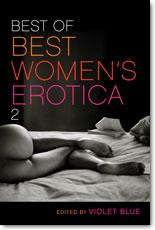

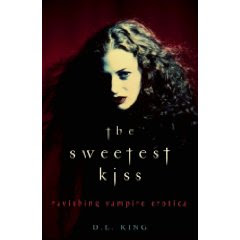


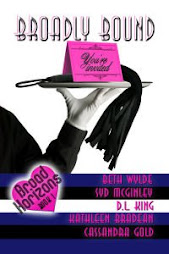.jpg)
